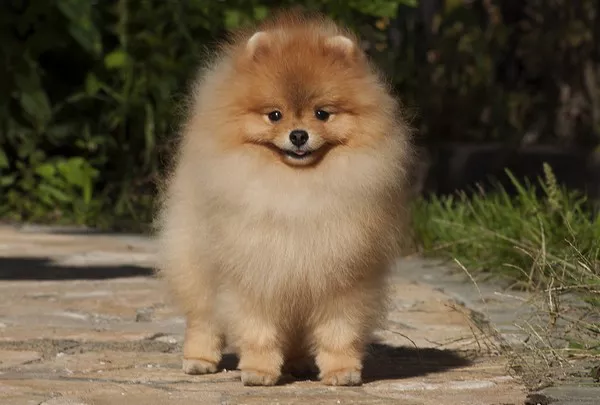Pomeranian puppies are known for their playful and affectionate nature, but they can also be quite nippy. If you’re not careful, this behavior can quickly become a habit that’s difficult to break. Here are some tips on how to train your Pomeranian puppy not to bite:
1. Understand Why Puppies Bite
Puppies bite for a variety of reasons, including:
- Teething. Puppies’ teeth start to come in around 3 weeks old, and they can be quite uncomfortable. Biting helps to relieve some of this discomfort.
- Play. Puppies learn about the world through their mouths, and biting is a natural way for them to explore their surroundings.
- Attention-seeking. Puppies often bite when they want attention. If you yelp or laugh when your puppy bites you, they may learn that this is a way to get your attention.
- Fear or anxiety. Some puppies bite when they’re feeling scared or anxious. This is more likely to happen if your puppy has been abused or neglected.
2. Teach Bite Inhibition
Bite inhibition is the ability to control the force of one’s bite. It’s important for puppies to learn bite inhibition so that they don’t hurt people or other animals.
One way to teach bite inhibition is to yelp loudly when your puppy bites you. This should startle your puppy and make them stop biting. Then, immediately redirect your puppy’s attention to a toy or chew bone.
It’s also important to be consistent with your training. If you only yelp sometimes, your puppy won’t learn what you’re trying to teach them.
3. Provide Plenty of Chew Toys
Puppies need to chew. It helps to keep their teeth and gums healthy, and it also helps to relieve boredom.
Provide your puppy with plenty of chew toys, such as bones, rubber toys, and Kong toys. You can also freeze some of these toys to make them even more appealing.
4. Supervise Your Puppy at All Times
When your puppy is out of their crate, they should always be supervised. This will help to prevent them from getting into trouble, such as chewing on furniture or biting people.
If you can’t supervise your puppy, put them in their crate. This will give them a safe place to relax and chew on their toys.
5. Be Patient and Consistent
Training a puppy not to bite takes time and patience. It’s important to be consistent with your training and to never give up. With time and effort, you can teach your puppy not to bite.
Additional Tips
- Avoid playing tug-of-war. This type of play can encourage your puppy to bite.
- Don’t hit or yell at your puppy. This will only make them scared and more likely to bite.
- Praise your puppy when they play gently. This will help them to learn that gentle play is what you want.
With patience and consistency, you can teach your Pomeranian puppy not to bite. With a little effort, you can have a well-behaved and loving companion.


